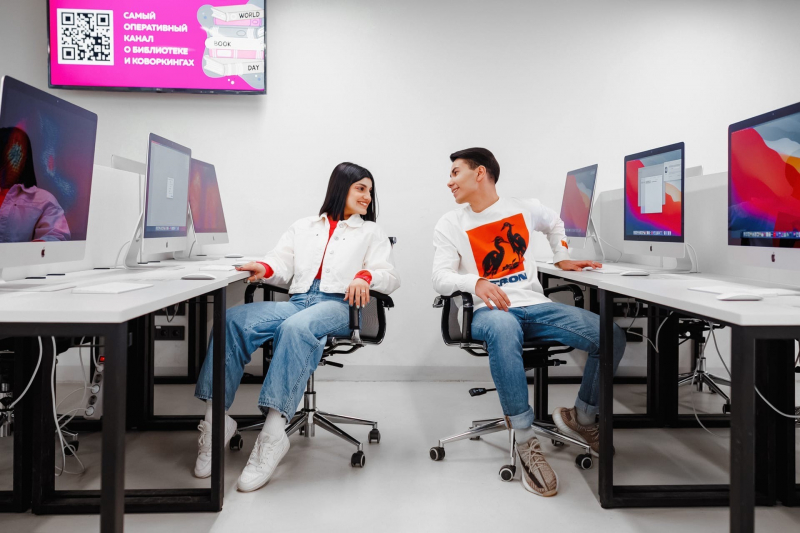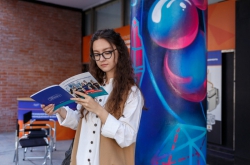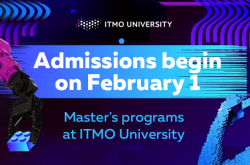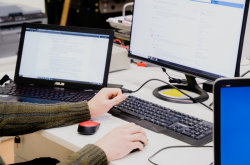About the contest
The first-ever Mega Contest will take place in 2022. The competition is currently open to Russian citizens, as well as foreign citizens and stateless persons eligible to receive higher education through budgetary allocations in accordance with Russian federal laws and international treaties signed by the Russian Federation. To participate in the contest, prospective participants must sign up on the official website (in Russian) and choose a track or tracks they would like to take part in before February 1. Within two weeks, the contest organizers will hold a qualifying round for all participants, and starting April 1, those who showed great results during the first stage will get to compete in the final round. The finals will be held using an online proctoring system to avoid cheating. Winners will be announced on April 20.
Third- and fourth-year Bachelor’s students, as well as recent graduates, will have the chance to pursue their Master’s degrees at ITMO without taking entrance exams. Winners from other cities will receive relocation assistance and free accommodation at the university’s dorms during their studies. Others may get a travel grant from the university, which will cover the cost of travel from their hometown to St. Petersburg and back, as well as accommodation expenses during their stay in the city.
Contest tracks
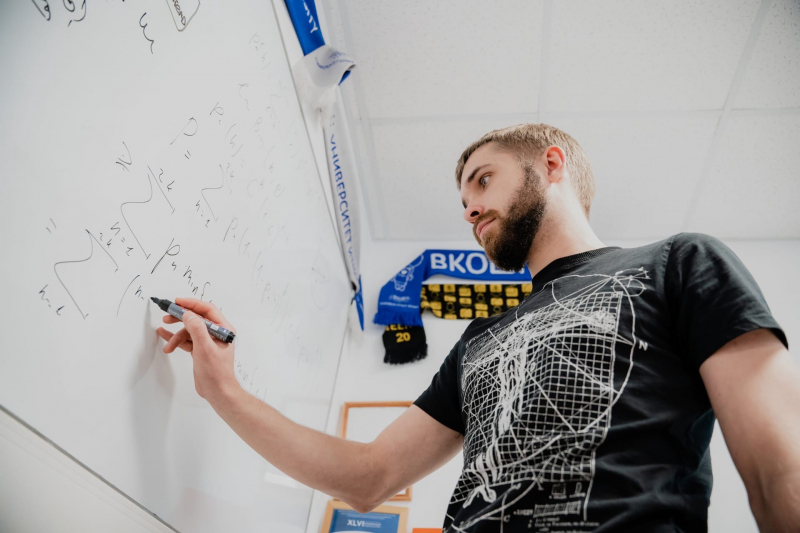
Credit: ITMO.NEWS
Participants who would like to test their knowledge in physics should take the Physics track where they will get to solve problems in such fields as nanophotonics, physics of nanostructures, as well as wireless data transmission.
By joining the Engineering Sciences track, you will learn how good you are at designing various systems, including climatic or energy conversion ones with the use of traditional or new materials.
The Software Engineering and Computer Technologies track is aimed at those who can develop computer systems, as well as server/client mobile and web solutions.
Mathematical Modeling includes two sub-tracks: physical processes and intelligent systems. Participants of this track will try to achieve research goals in quantum information science and address cases provided by the SIBUR company.
Those who will join the Artificial Intelligence track will deal with a wide range of challenges, including those in the fields of machine learning, as well as text/speech/image analysis and processing.
The Cybersecurity track welcomes those participants who can identify cybersecurity threats to any information system and know which cryptographic techniques will do the job.
To solve the problems of the Robotics track, it is good to be experienced with systems and robotic software.
Participants of the Chemistry track should focus on inorganic, physical, and analytical chemistry while preparing for the contest. There might also be tasks on the properties of polymers and nanomaterials. In general, the contest welcomes uncommon approaches so participants are encouraged to think out of the box and not be afraid to suggest novel solutions.
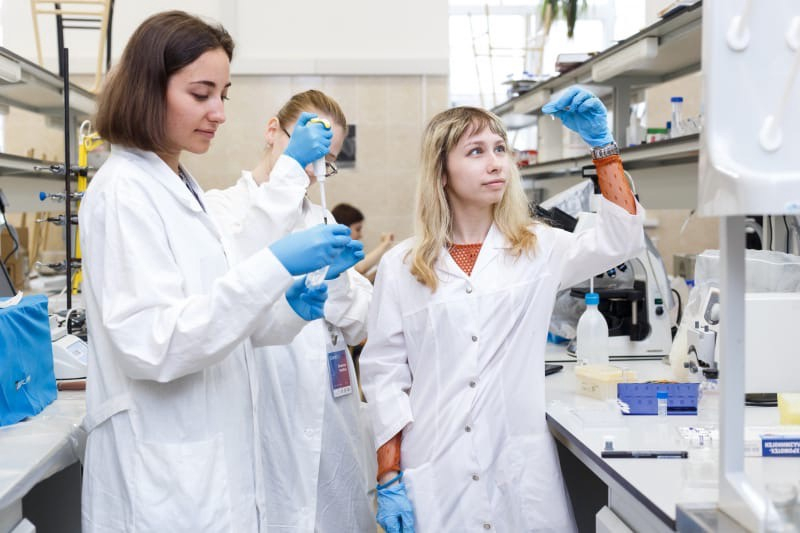
Credit: ITMO.NEWS
When training for the Molecular Biology track, you should pay particular attention to modern trends in molecular biology of both microorganisms and more complex living systems, including human cells. A great emphasis is placed on the understanding of contemporary methods used to explore molecular and cellular processes.
The Biotechnology track is there to assess your skills in biochemistry, microbiology, and molecular biology.
The track in Ecology and Environmental Protection is intended for participants who enjoy tackling challenges related to technosphere safety, environmental design, and sustainable waste management and consumption.
Public Health will be a good fit for those who are passionate about health research.
The Science Communication track is for those who know popular science like the back of their hand and can explain complex concepts in a simple way.
Contestants can choose one or more tracks, following, for instance, the lead of Eridan Domoratsky, a fourth-year student at the Faculty of Software Engineering and Computer Systems who decided to try himself in three fields at once:
“I learned about the competition from the university’s newsletter and decided to apply because I enjoy taking part in contests. Besides, it might be my chance to get into ITMO. However, I don’t know what Master’s program I’d like to pick since there are so many. Although I believe that such competitions are meant to test your expertise and knowledge, I’ll still try to go through the demos to know what to expect at each round. Hopefully, the tasks will be interesting and rather simple, and maybe even similar to those at the I am a Professional contest. Thus, I will have an advantage since I participate in the contest every year,” says Eridan Domoratsky.
Insights

Credit: ITMO University
Maria Moskalenko, a curator of the Mathematical Modeling track, believes that Mega Contest is not only a great test for students and graduates but also a brand new interaction format.
“To succeed at Mega Contest, participants must be both well-versed in various fields of mathematics and creative with their solutions. We expect participants to be ready to justify their choices. While preparing for the tasks, I’d recommend focusing on the issues of qubit representation, various ways of implementing quantum systems, the mathematical formulations of quantum mechanics, and the fundamentals of computer science. Participants should know at least one programming language, too,” notes Maria Moskalenko.
As highlighted by Polina Khapaeva, a curator of the Chemistry and Molecular Biology tracks, the competition will let prospective students learn more about the university programs, as well as demonstrate their achievements.
“This contest is both about hard and soft skills. Contestants should be able to quickly come up with novel solutions and adapt to the current situation. These are the traits we’re looking for in our students because we believe that academic knowledge alone doesn’t make a top-notch specialist,” shares Polina Khapaeva.
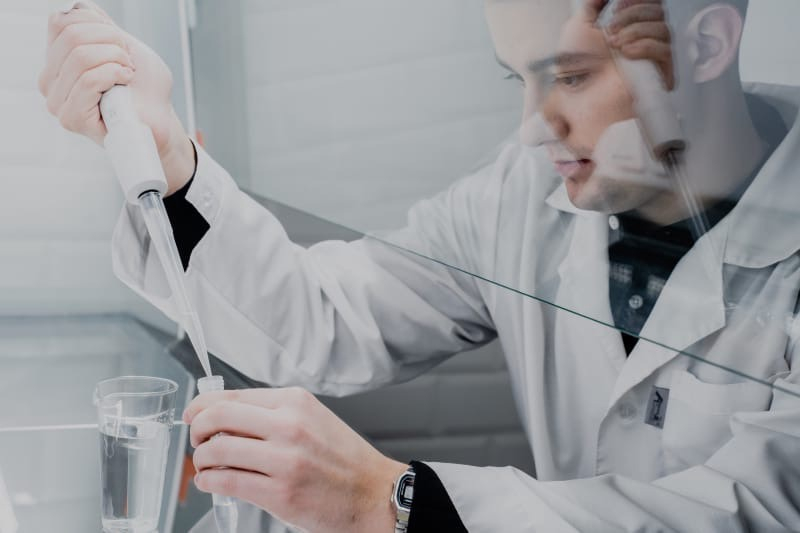
Credit: ITMO.NEWS
Nadezhda Serova, a curator of the Biotechnology track and PR manager at the Faculty of Biotechnologies, adds that the recipe for a successful performance includes, on the one hand, the fundamental knowledge and the ability to search and correctly analyze information, and on the other – motivation, initiative, and a student’s involvement with university life. All these personal and professional qualities will come in handy during the qualifying round when participants will solve tests and problems, as well as during the finals when they will get to write a motivation letter, as well.
According to Mikhail Kurushkin, the dean of the Faculty of Biotechnologies, Mega Contest may help the university attract new applicants, reveal mutual benefits and interests, and subsequently create a significant project together, be it a startup, research for publication, or an engineering project with patenting potential.
“This is a highly efficient way to evaluate your professional skills. By taking part in the contest, you get to test your competencies in an engaging and dynamic way. In any case, it’s a win-win situation: you will either become a winner and join ITMO.Family or acquire valuable experience and guidance,” comments Nadezhda Serova.
